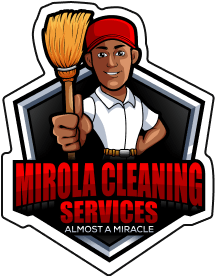Here is how to budget for a year of janitorial services in NJ. Budgeting properly for janitorial services in New Jersey ensures you stay financially prepared while maintaining a clean, professional environment. This guide walks you through all the key steps, includes real data and local context, and answers common questions.

Why budgeting matters
When you outsource to a professional firm such as Mirola Cleaning Services, you commit to ongoing costs. If you overlook variables like frequency, location, building size or contract terms, you might face surprises: rate increases, skipped services or poor cleaning quality. A deliberate budget gives you clarity and control.
Also, a clean workspace improves employee productivity, health and your company’s image. Outsourced janitorial services often cost less than managing in-house, once you factor in labour, insurance, equipment and supplies.
Step-by-step: Building your annual janitorial budget
1. Define your service requirements
- Determine your facility’s square footage.
- Identify service frequency (daily, nightly, weekly, weekend).
- Decide scope: basic cleaning vs. deep cleaning, floor care, window cleaning, and sanitisation.
- Note special surfaces or high-traffic zones (restrooms, entry lobbies, manufacturing areas).
- Decide on eco-friendly chemicals or green cleaning if desired (may add cost).
2. Understand local cost benchmarks
- National averages for commercial janitorial/cleaning services range from $0.10 to $0.25 per square foot, depending on frequency and facility type.
- Typical hourly rates for janitorial crews in the U.S. fall around $25-50 per hour. (Jobber)
- In New Jersey, a more specific example: in Newton, NJ the cost for janitorial services (residential/office) ranged from $119 to $397 for smaller jobs. (Manta)
- Given the NJ labour and overhead costs, expect your contract to fall in the higher end of national brackets for comparable square footage/frequency.
3. Estimate your annual cost
Here’s a simplified example for budgeting:
- Suppose your building is 20,000 sq ft.
- You contract for cleaning 5 nights per week (Monday–Friday).
- Use a rate of $0.20 per sq ft (mid-to-high range for frequent service in NJ). That equals $4,000 per cleaning (20,000 × $0.20).
- If you’re cleaned 5 nights/week for 52 weeks → 260 events → Annual cost ≈ $4,000 × 260 = $1,040,000.
(This is for a heavy-service model; adjust frequency or square footage for a smaller scale.)
If you reduce to 3 nights/week, the annual cost becomes $4,000 × 156 = $624,000.
You can also estimate using weekly or monthly contract models.
4. Add additional costs
- Deep cleaning or speciality services (floor stripping/waxing, carpet shampooing, window cleaning) will add extra cost. For example, floor buffing might cost $0.03-$0.12 per sq ft.
- Supplies, equipment, materials: often included in contract but clarify.
- Annual inflation/increase clauses: Some NJ municipal contracts reference the state “Index Rate” for yearly increases.
- Hidden costs of in-house cleaning (if you ever compare): insurance, equipment maintenance, HR overhead. Outsourcing often reduces those.
5. Build in contingency and review regularly
- Set aside 5-10% extra for unexpected services (after-hours cleaning, event cleanup, emergency sanitisation).
- Review contract quarterly: ensure service frequency and quality match budget.
- Renegotiate or adjust the scope if building use changes (more occupancy, expanded area, or remote working reduce cleaning needs.)
Frequently Asked Questions
Q: How often should I schedule janitorial services?
A: It depends on occupancy and use. Typical office buildings are cleaned 5 nights/week or daily. Light-use facilities might be cleaned 3 nights/week or even fewer. Frequency affects cost directly.
Q: Is it cheaper to hire in-house janitorial staff rather than outsource?
A: Often no. A professional service bundles labour, equipment, insurance, training and oversight. According to one cost guide, the median hourly wage for janitors in 2024 was $17.27. Managing a full in-house team brings many indirect costs.
Q: What factors most increase janitorial service costs in New Jersey?
A: Larger square footage, higher cleaning frequency, complex surfaces (marble, terrazzo), specialised services (deep clean, disinfection), and high labour cost areas. The location (NJ metro cost premium) also influences the rate.
Q: How can I reduce annual janitorial costs without sacrificing cleanliness?
A:
- Reduce frequency in less-used areas (hallways, storage) and maintain high frequency in high-traffic zones.
- Negotiate bundling of services (day-night rotations, combine floor care with standard cleaning).
- Choose a provider with transparent pricing and service metrics.
- Monitor occupancy/use trends (if staff work hybrid, fewer cleaning nights may suffice).
Conclusion
Budgeting for a year of janitorial services in New Jersey involves more than picking a number. You need to define your building-use profile, cleaning frequency, scope of work and local cost factors. Use national benchmarks as starting points (e.g., $0.10-$0.25 per sq ft) and adjust upward for NJ conditions. Build in extras for speciality services and inflation. With a well-structured budget, you gain control, prevent surprise costs and ensure your workspace stays clean and professional.
